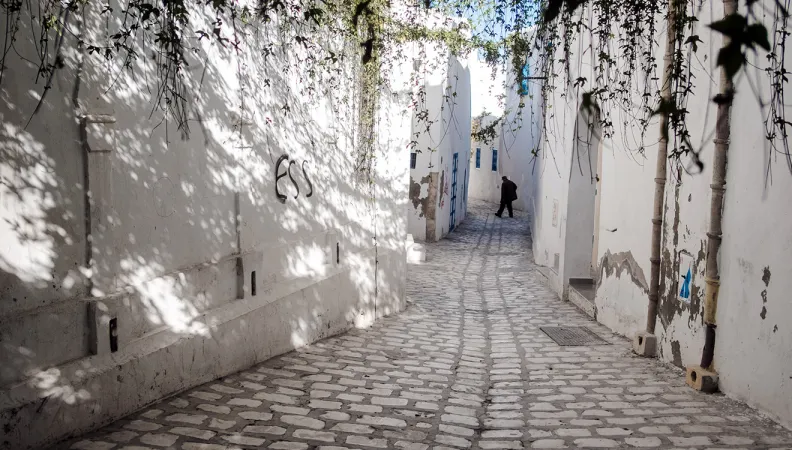Share the page
AFD Supports Urban Renewal in Tunisia’s Cities
Published on

With urban concentration constantly growing in Tunisia for ten years now, Agence Française de Développement is implementing programs to improve the quality of life of residents in poor neighborhoods. They include the Proville and Urban Fabric initiatives.
In the most urbanized country in the Maghreb, city planning is a crucial issue. Almost 70% of Tunisians live in urban areas, with some 8 million Tunisians out of an estimated population of 11 million living on just 10% of the territory. The rural exodus and galloping urbanization rate has caused uncontrolled urban sprawl, the creation of informal settlements and problems tied to wastewater treatment and the delivery of community facilities.
Addressing urban densification
“The development of these neighborhoods, which are marked by a lack of access to basic services, great insecurity and real social exclusion,” says Fatima Chioukh, AFD’s Project Team Leader at the Urban Development, Town Planning and Housing Division. “This has gathered pace following the Jasmine Revolution in 2011, which has also revealed deep social and territorial inequalities.”
What has been characterized as a social and urban emergency has prompted the Government of Tunisia to request support from AFD, the European Investment Bank (EIB) and European Union (EU) to address the needs of residents in these poor neighborhoods for infrastructure, services and facilities. The goal has also been to eradicate the development of informal housing, which have grown, to the detriment of agricultural land.
Further reading: Tunisia Reinvents its Suburbs
AFD has been financing the Proville 1 and Proville 2 program since 2008, with the participation of the EIB and EU. It aims to improve infrastructure in deprived urban areas. This support to the Urban Policy is upgrading neighborhoods considered priorities. Proville is addressing needs for roads, sanitation and street lighting. Social and community facilities and premises for activities are also being created. AFD is contributing to the Proville 1 and Proville 2 programs via a loan in the order of €107 million.
155 neighborhoods already supported
Another major challenge, which is an integral part of upgrading and equipping these neighborhoods, lies in countering unplanned urban development. This involves offering people in the most precarious situations the possibility of accessing affordable and equipped land. An “affordable housing scheme” has been added to Proville for this purpose. It aims to service between 2,000 and 3,000 plots of land for self-building to combat urban sprawl and its corollary, spontaneous housing.
To date, 155 Tunisian neighborhoods, with a total of some 865,000 residents, have benefited from this upgrading project. “We do it in partnership with the institutional operators in the neighborhoods concerned and the municipalities are involved,” says Fatima Chioukh.
The importance of consultation
In Proville, there is also the Urban Fabric Initiative for citizen project laboratories. These laboratories are located in the Tunisian neighborhoods affected by the Proville program and are also to be found in Ouagadougou, Abidjan and Dakar. The initiative seeks to generate public participation before setting to work on altering the urban environment. “It’s a tool that fosters dialogue between institutional operators and residents. The residents lead and support the initiatives,” says Fatima Chioukh.
Urban incubators are real laboratories for thinking and firstly help residents come up with ideas. This gives rise to micro-projects for small amounts, which are rapidly implemented on the sites of urban projects financed in parallel by AFD.
Further reading: Reinforcing the Urban Fabric with Citizen Project Laboratories
Tunisian citizens can subsequently make proposals for urban development, such as the development of a garden with a refreshment bar run by an association, and the construction of a bridge for schoolchildren in a flood-prone area. Following a call for projects, a selection takes place with the residents. “It’s very interesting to see the building of this kind of cooperation, this collective work carried out between residents and the municipality,” says the urban development specialist.
AFD has also allocated a €950,000 grant for these laboratories in Tunisia. It is a strong signal reflecting the commitment to promote more participatory practices and better meet people’s needs.
The content of this publication is the sole responsibility of AFD and does not necessarily reflect the opinions of the European Union.
